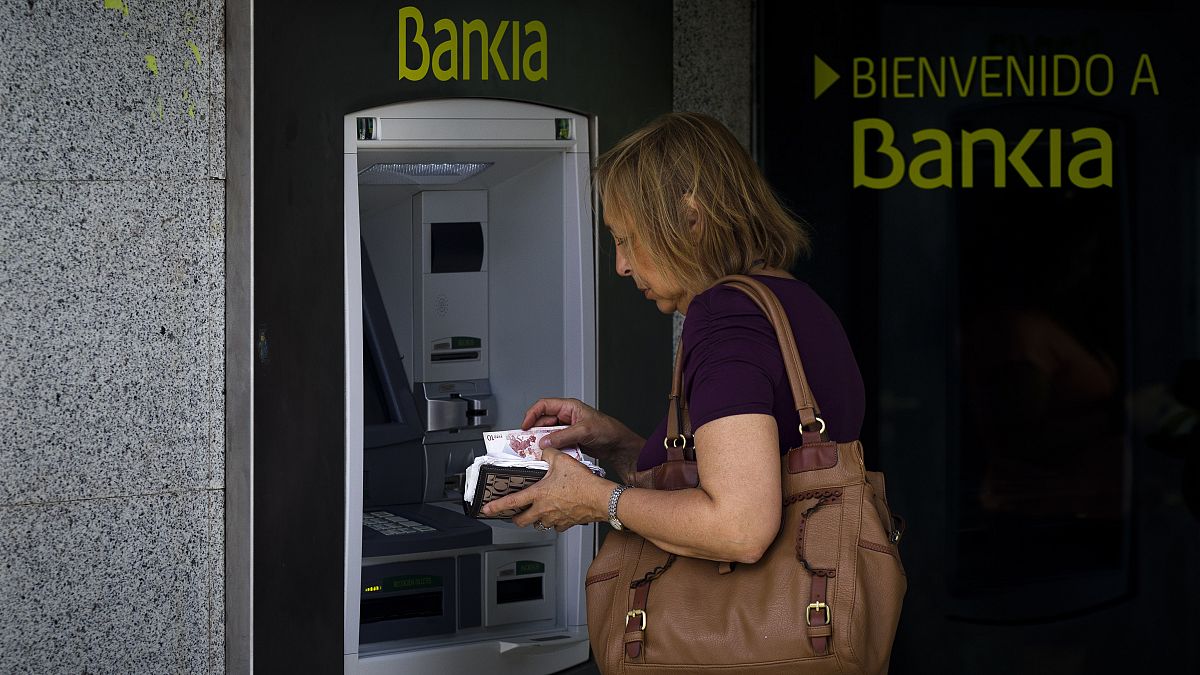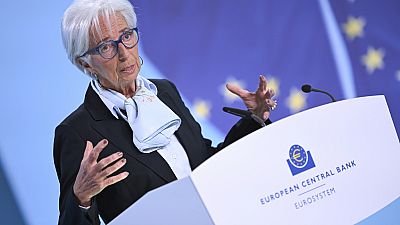A report by Finance Watch shows that despite EU legislation, vulnerable consumers in the bloc don't have easy access to a basic bank account. In the midst of a cost-of-living crisis, the non-profit organisation believes a review of the rules is more necessary than ever to make them work for all.
In Romania, around three out of ten people over 15 did not own a bank account in 2021, while in Bulgaria and Hungary the number of unbanked people ranged from 12% to 16%.
“Given the still high number of unbanked people in the EU, as well as the high number of vulnerable consumers more generally, it is important that strong rules are in place to ensure that vulnerable consumers have easy access to an affordable basic bank account,” the report stated.
In 2014, the EU introduced the so-called 'Payment Accounts Directive' (PAD), a piece of legislation designed to ensure that every citizen in the bloc has the right to a basic bank account that allows them to make payments online, withdraw cash from ATMs and even become overdrawn.
However, ten years on, many vulnerable consumers in the EU still face barriers to accessing basic bank accounts, which allow them to receive a salary or social benefit, pay rent or taxes, or access other financial services such as pension products, according to the report.
Among the reasons cited are insufficient awareness campaigns, affordability, documentation and excessive de-risking measures, as well as a reluctance on the part of financial institutions to offer and inform consumers about these products.
In Romania, for example, banks proactively offered these basic accounts in around three out of ten cases, and although they are supposed to be free for vulnerable consumers, in practice the accounts are sometimes sold as part of a package with additional services, the report said.
For the Romanian Banking Association (ARB), the low level of financial inclusion can be partly explained by another figure: “In 2021, the grey economy represented 24% of Romania’s GDP, the seventh highest value in the European Union,” the organisation told Euronews in a statement.
The European Consumers' Organisation (BEUC) has a different view.
“With the decreasing offer of bank branches and cash services, financial institutions are rendering the access to basic banking services more difficult,” said Anna Martin, BEUC’s financial services officer, adding that “even compared to normal bank accounts, the price for basic bank accounts in many countries is very high".
In Germany, a basic payment account costs up to €27.83 a month, in Denmark €13 and in Finland €10, while in other countries such as Spain it is free if the consumer's gross household income is less than €25,200 a year.
The 2014 directive included provisions for member states to ensure that the products are offered by credit institutions free of charge or for a reasonable fee, but so far there is no clarification on what could be considered as reasonable in this case.
“Given a payment account is an essential service, these consumers should not be prevented from having an account due to it constituting a substantial financial sacrifice,” the report noted.
Homeless people and refugees are also covered by the directive, which applies to all EU citizens - although in practice bureaucracy and lack of proper identification documents make it difficult for them to open or maintain these accounts.
“Banks make it difficult for certain consumer groups such as refugees to access a bank account allegedly to prevent money laundering,” Martin stressed.
People experiencing homelessness face a similar situation, as there are clear differences between member states in the way they interpret the need to guarantee the product to those without an address or proper documentation.
Freek Spinnewijn, director of the European Federation of National Organisations Working with the Homeless (FEANTSA), told Euronews that the lack of 'proof of address' is still a barrier for homeless people to access a bank account.
In France, Bulgaria, Latvia and the Czech Republic, there is no specific mention of the exemption from the need to provide an address in order to open a basic bank account.
“Even though the legislation adopted by many member states should remove this problem, in practice people are being refused by banks if they cannot provide a document with a permanent address on it,” FEANTSA noted in its latest analysis of the directive.
A problem that could, however, be solved by introducing a provision in the PAD for those consumers without proper documentation to open a basic bank account with stricter monitoring requirements and more limited features.
“This is a pan-European problem, that's why we are advocating for a pan-European solution,” Peter Norwood, senior researcher at Finance Watch, stressed at the launch of the report.
Any solution will have to wait until the next mandate, however, as the EU executive's indicative agenda until early July does not foresee any action in this area.



